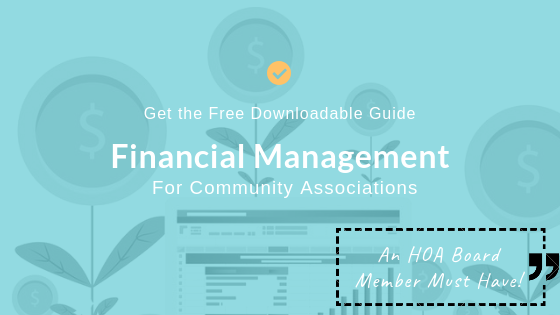If your Homeowner's Association (HOA) or Condo Association is relatively small, uncomplicated and already well run, you might be able to continue managing its work on your own. For many HOA's, however, self-management becomes untenable. They might think they have things well under control, but they could be facing substantial risks, some of them legal.
"There are many risks to be weighed when considering self-management over professional management such as possibly breaking the law simply because a lack of knowledge of the law and boards and association’s alike finding themselves overly exposed to liability by not having adequate or proper insurance coverage, again simply because they do not properly understand what is required. Add to this the operations aspect of an association which include coordination with vendors, facilitation of board and membership meetings, collection of assessments, creation and maintenance of budgets, monitoring reserve studies to insure proper upkeep of assets to name a few and you can see how a well-intentioned group of volunteers can find themselves underpowered, overexposed and absolutely exasperated."
RealManage Division President Sandra Vela-Mora, CMCA®, AMS®, PCAM®
What Risks Do Self-Managed HOA's Face?
There are several ways in which self-managed HOA's can get into trouble, including the following 5:
- Not complying with the law: every HOA has certain legal obligations, and they can be complicated. Reserve studies and updates, annual disclosures and accounting procedures must all be done within compliance of the law.
- Not being properly insured: your HOA needs to have the right insurance, and the right amount of it. If a self-managed HOA has the wrong insurance, it could be facing a lawsuit.
- Inefficiency: many self-managed HOA's are run by volunteer board members who don't have adequate experience preparing board packets, helping HOA members or collecting assessments. That lack of knowledge often leads to operational inefficiencies.
- Lack of member advocacy: in a self-managed HOA, to whom does a member turn when he feels he's being treated unjustly? The lack of advocacy for members is a major sticking point when you run the show yourself.
- Lack of responsiveness: volunteer board members work hard but don't always have the time to deal with member problems. It can become contentious and damage trust when a member has a problem and no one is available to deal with it.
What Are the Benefits of a HOA Management Company?
A professional management company has deep experience in handling the many issues with which an HOA must deal annually. They know applicable laws, for example, and can clarify HOA rules and regulations for members—and enforce those regulations consistently and without partiality. They typically have experience working with vendors and can respond to member problems quickly and effectively. For all these reasons, an increasing number of HOA's are turning to the experience a management company can offer.
Of course, every HOA and every community is different, and only you can decide what's best for yours. That said, in general a management company can help most HOA's in several critical ways, including the following 4:
- They can enhance trust: when members don't know—or don't understand—the HOA's rules and regulations, they're more apt to get frustrated, and to distrust the board. A management company has the skill and experience to clearly explain HOA rules so that all members understand and can comply with them, which enhances trust between the board and members.
- They enforce regulations consistently: when the HOA applies its regulations inconsistently or with favoritism, discontent and bad feelings result. A management company has no personal stake in the enforcement of rules and regulations and can therefore be consistently fair.
- They can improve vendor relations: working with local vendors is another area that requires special skills, skills a self-managed HOA might not have. A management company can bring professionalism to vendor negotiations and disputes, and probably has a good deal of experience working with vendors in the community.
- They know the law: this is among the chief benefits of working with a professional HOA management company. They're familiar with all applicable laws and possess the expertise to effectively deal with any legal issues that arise.
- They have financial and management experience: it's important that your HOA handle things like financial planning, property management and accounting efficiently. A management company has the special expertise that self-managed HOA's frequently do not.
Conclusion
These are just some of the ways a management company can help your HOA or Condo Association run more smoothly, efficiently, fairly and within the letter of the law. There are of course others which apply to individual HOA's, this based on the nature of their boards and the communities with which they work. The bottom line is that, although a management company is not the solution for every HOA, for many it means increased clarity, communications, equity and trust.
To learn more about the ways we can help your HOA thrive with transparency, increased communication and robust support, contact us today.


